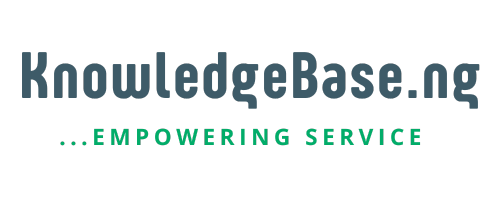In the fast-paced world of work, effective task prioritization and workload management are essential skills for professionals in any field. Public servants, who often face numerous responsibilities and tight deadlines, can greatly benefit from mastering these skills. By prioritizing tasks and managing their workload effectively, public servants can enhance productivity, reduce stress, and achieve better outcomes. In this article, we will explore practical strategies and tips to help public servants prioritize tasks and manage their workload efficiently.
- Assess and Understand Priorities: Start by gaining a clear understanding of your priorities. Identify tasks that align with the objectives and goals of your organization. Consider the urgency, importance, and impact of each task. Categorize them into “high priority,” “medium priority,” and “low priority” based on their significance and deadlines. This assessment will provide a foundation for effective task prioritization.
- Use a Task Management System: Implement a reliable task management system to keep track of your tasks and deadlines. Utilize tools such as digital to-do lists, project management software, or simple task-tracking apps to create a centralized system. Break down larger projects into smaller, manageable tasks, and assign realistic deadlines to each. This approach ensures that tasks are organized, visible, and easier to prioritize.
- Apply the Eisenhower Matrix: The Eisenhower Matrix is a powerful tool for task prioritization. Divide tasks into four categories: “urgent and important,” “important but not urgent,” “urgent but not important,” and “not urgent or important.” Focus on tasks in the “urgent and important” category first, followed by those that are “important but not urgent.” Delegate or eliminate tasks in the “urgent but not important” category whenever possible. Minimize or postpone tasks in the “not urgent or important” category.
- Consider Deadlines and Dependencies: Take into account the deadlines and dependencies associated with each task. Identify tasks that are time-sensitive and have dependencies on other tasks or team members. Prioritize tasks that are critical to meeting deadlines or enable others to proceed with their work. By considering these factors, you can ensure smoother workflow and prevent bottlenecks in the project or process.
- Use Time Blocking Techniques: Implement time blocking techniques to allocate dedicated time slots for specific tasks or activities. Set aside uninterrupted blocks of time on your calendar for focused work on high-priority tasks. During these time blocks, eliminate distractions, close unnecessary tabs or apps, and fully engage in the task at hand. Time blocking helps enhance productivity, maintain focus, and complete tasks more efficiently.
- Learn to Say No: Public servants often face additional requests and demands on their time. Learning to say no is crucial to protect your priorities and manage your workload effectively. Assess new requests based on their alignment with your priorities and capacity. If a new task or commitment does not fit into your existing workload or objectives, politely decline or negotiate for a more suitable timeline.
- Seek Support and Delegate: Recognize when tasks can be delegated to others. Effective delegation not only lightens your workload but also fosters collaboration and skill development within your team. Identify competent team members who can handle specific tasks and provide clear instructions and expectations. Trust in their abilities and maintain open lines of communication to ensure successful delegation.
- Regularly Review and Adjust: Regularly review your task list and workload to ensure ongoing alignment with priorities and changing circumstances. Assess completed tasks, reevaluate their impact, and make adjustments as necessary. Stay flexible and be prepared to reprioritize tasks based on emerging needs or new information.
Prioritizing tasks and managing your workload effectively are essential skills for public servants seeking to maximize productivity and achieve their goals. By assessing priorities, using task management systems, applying the Eisenhower Matrix, considering deadlines and dependencies, implementing time blocking techniques, learning to say no, delegating tasks, and regularly reviewing and adjusting your workload, you can take control of your work and accomplish more with greater efficiency. Embrace these strategies, develop consistent habits, and witness the positive impact on your productivity, job satisfaction, and overall work-life balance as a public servant.

